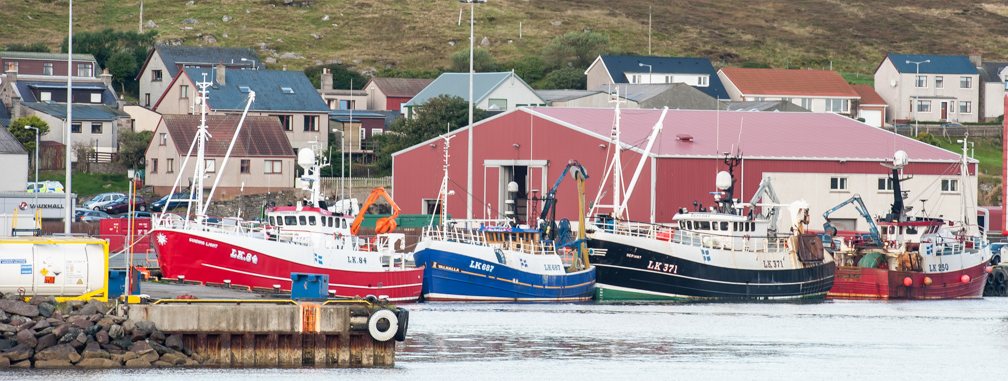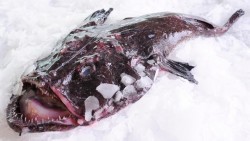Effort relief for fishermen

Fishermen’s spokesmen have welcomed news that there will be no further cuts in days at sea next year after the December fisheries council ended yesterday.
However discussions on quotas for North Sea stocks shared with Norway, like cod, haddock and whiting, could stretch into February, as will the dispute over the North Atlantic mackerel stock that is ongoing between the EU/Norway and Iceland and Faroe.
Shetland Fishermen’s Association chairman Leslie Tait said he was “relieved” that there would be no further reduction in effort. He added that fishermen would be disappointed to be going into Christmas with uncertainty over next year’s quotas for the main white fish stocks.

Mr Tait said: “While many of our key quotas have yet to be decided in talks between the EU and Norway, possibly as late as February, we do know that effort will not be cut, that a proposed reduction in monkfish quota will be limited to 10 per cent instead of 20 per cent and that there could be scope for an increase in cod quota.
“Like cod, quotas for North Sea haddock, ling, whiting and saithe will be finalised with Norway. We would be very concerned if commission proposals for cuts in some of these quotas were agreed, as stocks are in better shape than they have been for decades.”
The commission also agreed to an eight per cent increase in the megrim catch in the North Sea and 20 per cent off the West Coast as well as a 49 per cent increase in the hake catch in all areas.
The Scottish Fishermen’s Federation (SFF) said that the days at sea freeze was a “key outcome” of the meeting, given that any further reduction in fishing days would have placed an unbearable economic burden on the fleet for no conservation gain.
SFF chief executive Bertie Armstrong said: “We are relieved that there will be no further cuts in fishing days as it would have brought real economic hardship to the fleet at a time when fish stocks are recovering. Freezing the effort at its current level was entirely the commonsense approach to take.”
There will be reductions for west of Scotland haddock, west of Scotland and North Sea monkfish and North Sea and West coast prawns while the quota for west of Scotland whiting remains unchanged.
Mr Armstrong said: “Many of the cuts tabled were larger than would normally be the case because of the EC’s move towards the principle of ‘maximum sustainable yield’, and there is no doubt that the final reductions agreed for some species will undoubtedly cause further difficulties for our fishing fleet. However, we do welcome the commitment given by the commission to support pilot fishing trials in the lead-up to the forthcoming discards ban, which will enable the fleet to innovate and develop workable future fishery management plans.”
Scottish Fisheries Secretary Richard Lochhead said that limiting effort controls had been the main priority for negotiators prior to the talks, which had also “secured some important flexibilities” allowing vessels to catch 10 per cent of their North Sea monkfish quota in the West of Scotland where the stocks were “healthier”.
He said that securing the current level of days at sea would offer stability for 2014. “This means our fishing fleet can achieve a better balance between having quota to catch and enough days at sea to catch it. This is the second year in a row without days at sea cuts but it is a great pity that that we arrived at these talks with this cloud of uncertainty still hanging over the fleet,” he added.
Northern Isles MP Alistair Carmichael claimed that UK government efforts to meet targets set by fishing industry representatives have “very largely delivered”.
He added: “I have always believed that it is important for government to listen to the fishing industry whenever catches and quotas are set. The industry representatives set clear and challenging targets for our negotiating team and I am pleased to see that a strong UK team has very largely delivered on what was asked of them.
“Much work remains to be done as the vital EU-Norway talks do not conclude until the New Year and the crucially important mackerel quota has still to be set.”
Shetland MSP Tavish Scott said that no further reduction in days at sea was the very least the industry needed, but warned that fishermen would be worried by the mixed results on quotas.
“The cut to North Sea monkfish is not good news as this is a very valuable species for the Shetland whitefish fleet. So these reductions will cause pressure on the finances of our boats.
He added: “I am pleased there was no desperate deal on mackerel despite concerns that the European Commission were pushing for this. But the international stalemate over Faroe and Iceland illegal fishing will re-emerge in the new year. It is vital that the Europe/Norway negotiations agree a sensible and sustainable way forward. That will be the early challenge in 2014.”








NO COMMENTS
Add Your Comment